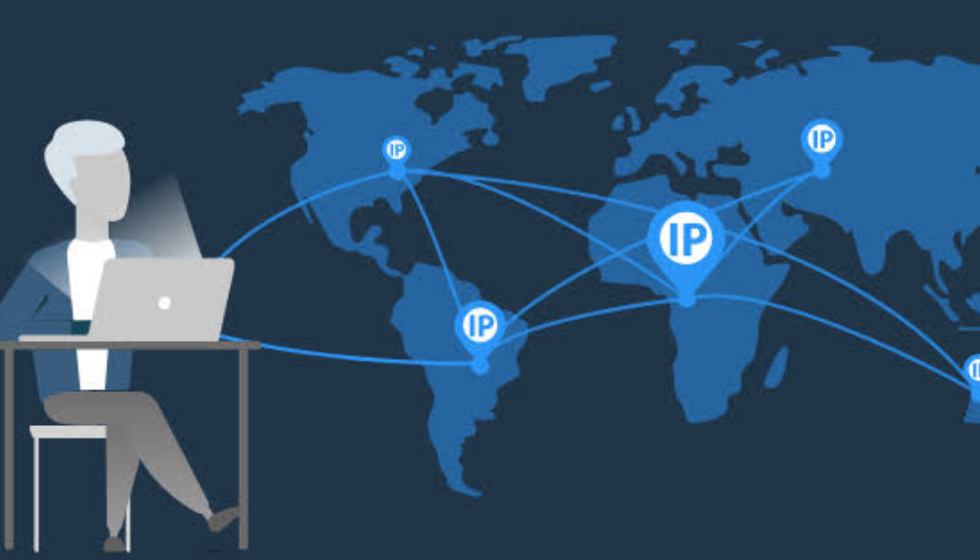Have you ever wondered what happens when you surf the net?
You might be using a VPN or a proxy server at your home office to do it without even knowing it. Or you could be an avid internet user with a bit of tech-savviness who uses a particular proxy server to achieve their goals.
In this article, we’ll try to cover these questions: What is a proxy? What’s the difference between a proxy and a proxy server? How can proxies benefit your business? Let’s find out.
What Exactly Is a Proxy?
A proxy is a sort of intermediary between the Internet and the user. When the user wants to access the internet, they send a request. A proxy receives the request, runs it through the proxy server, hides the user’s IP, and allows them to access the web.
Proxies are mostly used to allow users to browse the web anonymously. Aside from providing anonymity and hiding your IP address, proxies can be used to screen uploads and downloads, bypass geo-restrictions and unblock restricted content, filter web content, and more.
As many people use VPN proxies to watch online video movies or any digital content, there are many VPN providers available; you can find them on search engines, about the best VPN for streaming.
What Is a Proxy Server?
A proxy is an intermediary between you and the internet, and a proxy server is a gateway between the user and the World Wide Web. It acts as an intermediary server with one main goal: to separate the end-user from the website they are browsing.
Because of their purpose, proxy servers provide varying levels of privacy, security, and functionality based on your company policy, needs, and use case. Each time you try to connect to the internet, communication occurs between the server and your device.
A proxy server acts as a gateway between you and the server, allowing you to safely, privately, and anonymously access the desired website. This is particularly useful to businesses looking to scrape data from target websites without getting blocked or banned.
What are the major types of proxies?
There are several different types of proxies:
- Residential – Provided by a local ISP, a residential proxy provides a real IP address, perfect for businesses that need organic browsing to scrape data from target websites without being blocked.
- Datacenter proxies – These proxies imitate a real IP address, providing wholly anonymous and authentic internet access.
- SOCKS5 – This is the best solution for traffic-intensive tasks, such as video calls, VoIP, content streaming, downloading and uploading files, etc.
- Static – This type of proxy brings you the combination of residential and datacenter proxies, offering the best of both worlds in terms of user experience, speed, and stability.
- HTTP proxies – These can be used for two different purposes, such as an HTTP server and HTTP client, and they act as a tunnel between the user and the internet, providing more security, faster load speeds, and caching web data.
- Mobile – Mobile proxies use mobile devices to connect to the internet by routing users’ web requests through mobile servers that operate on mobile networks.
- Reverse – Reverse proxies route requests through particular backend servers that are usually a part of a firewall-protected private network. Their main advantages are protection against web-server attacks, improved performance, and reliability.
- Rotating – due to their rotating nature, these proxies are much harder to detect, rendering them almost impossible to block. If you need to scrape data from different global sources, rotating proxies are the best solution, as they continuously change the proxy IP.
- Web proxy servers – these proxies mask your location by hiding your IP from the target websites you visit.
Why Do Businesses Use Them?
Well-established businesses with the right resources to create and maintain a proxy infrastructure use proxies as the best in-house solution to target global websites and scrape data from them without being blocked or banned.
They can target the websites of their choice and scrape data without any disturbances. Aside from data scraping, proxies offer an additional layer of protection, security, anonymity, and privacy on the internet. If you want to learn more about how proxies help to reach business goals, read a guide-like article by Oxylabs on What is a Proxy Server.
What Are the Overall Benefits of Using Them?
Businesses use proxies as they have many benefits to offer. We’ve gathered the five most common ones:
- Improved business security – According to a study from 2019, data breaches left devastating consequences for businesses. Proxies can significantly reduce the chances of data breaches by adding additional layers of protection and security between all external traffic and companies’ servers.
- Protection from server crashes and traffic balancing – Downtime and slow loading speed are among the most significant issues for any business. Proxies, along with cloud data storage and peering, can handle these problems.
- Increased anonymity – One of the most significant benefits of using proxies is their ability to provide increased anonymity for your web presence, which is particularly useful for businesses. Essentially, proxies prevent third parties from tracking your traffic online.
- Faster speeds and bandwidth savings – Proxies can help save on bandwidth and increase your internet speed by blocking ads, compressing traffic, and caching web files and pages accessed by multiple users.
Conclusion
Proxies are extremely useful for any internet user, whether they are businesses or regular people just trying to access the internet to have some fun.
From enhanced security, anonymity, and privacy when browsing to increasing potential profits, finding business opportunities, and scraping top websites for precious competitive data, proxies play a crucial role in the digital era of the internet.
